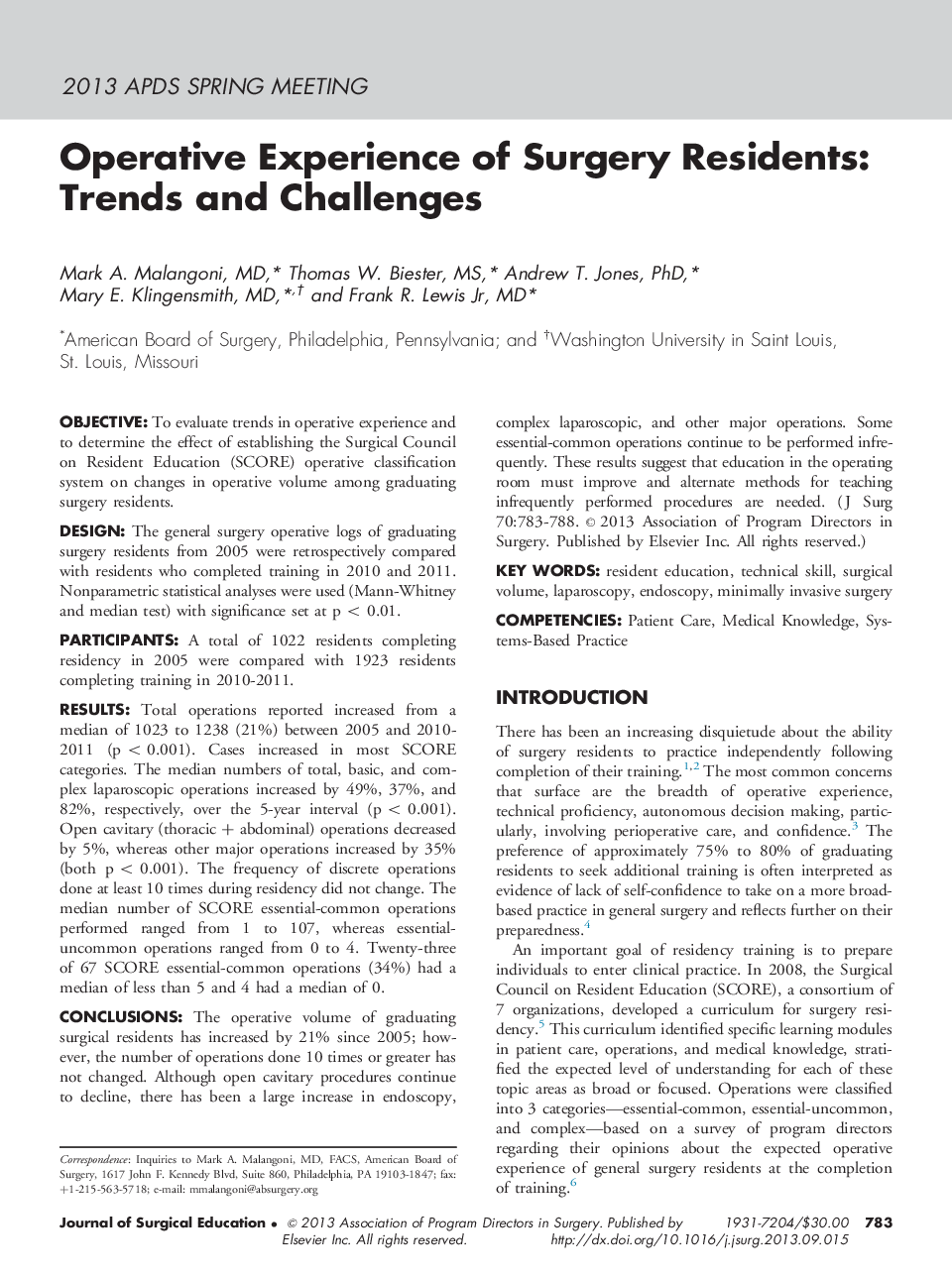| Article ID | Journal | Published Year | Pages | File Type |
|---|---|---|---|---|
| 4297995 | Journal of Surgical Education | 2013 | 6 Pages |
ObjectiveTo evaluate trends in operative experience and to determine the effect of establishing the Surgical Council on Resident Education (SCORE) operative classification system on changes in operative volume among graduating surgery residents.DesignThe general surgery operative logs of graduating surgery residents from 2005 were retrospectively compared with residents who completed training in 2010 and 2011. Nonparametric statistical analyses were used (Mann-Whitney and median test) with significance set at p<0.01.ParticipantsA total of 1022 residents completing residency in 2005 were compared with 1923 residents completing training in 2010-2011.ResultsTotal operations reported increased from a median of 1023 to 1238 (21%) between 2005 and 2010-2011 (p<0.001). Cases increased in most SCORE categories. The median numbers of total, basic, and complex laparoscopic operations increased by 49%, 37%, and 82%, respectively, over the 5-year interval (p<0.001). Open cavitary (thoracic + abdominal) operations decreased by 5%, whereas other major operations increased by 35% (both p<0.001). The frequency of discrete operations done at least 10 times during residency did not change. The median number of SCORE essential-common operations performed ranged from 1 to 107, whereas essential-uncommon operations ranged from 0 to 4. Twenty-three of 67 SCORE essential-common operations (34%) had a median of less than 5 and 4 had a median of 0.ConclusionsThe operative volume of graduating surgical residents has increased by 21% since 2005; however, the number of operations done 10 times or greater has not changed. Although open cavitary procedures continue to decline, there has been a large increase in endoscopy, complex laparoscopic, and other major operations. Some essential-common operations continue to be performed infrequently. These results suggest that education in the operating room must improve and alternate methods for teaching infrequently performed procedures are needed.
